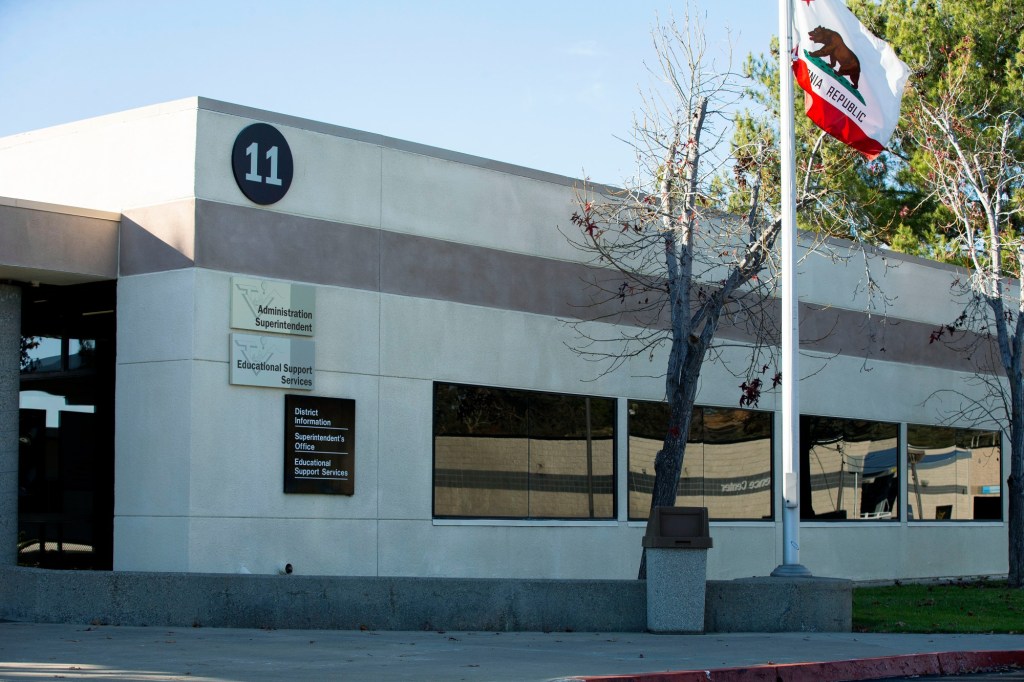
The Temecula school board has decided to stop enforcing its ban on critical race theory and will ask a committee to examine the policy’s language to “satisfy the courts,” which last week ruled that the policy was unconstitutional.
An appellate court called the policy — passed in late 2022 at the first meeting after a conservative school board majority was elected — “vague and unconstitutional.”
At its Tuesday, May 27, meeting the Temecula Valley Unified School District board unanimously voted in closed session to stop enforcement of the policy, which prevented teachers from teaching critical race theory. A committee of board members Joseph Komrosky and Emil Barham and representatives from Advocates for Faith & Freedom — a Murrieta-based law firm representing the board — will look to rewrite the policy.
The board also voted 3-2 not to take further legal action after the court’s ruling in the lawsuit from teachers and students over the ban.
Critical race theory involves examining the role of race in society and how racism has been historically embedded in institutions and policies.
When the Temecula board barred critical race theory in December 2022, the conservative board majority included current trustees Jen Wiersma and Komrosky. Komrosky introduced the resolution, which called critical race theory a “racist ideology.” He could not be reached Friday afternoon, May 30.
The board’s resolution said critical race theory is “divisive” and “based on a false assumption” that “assigns moral fault to individuals solely on the basis of an individual’s race.” It also states that “critical race theory assigns generational guilt and racial guilt for conduct and policies that are long in the past.”
However, Temecula schools officials, including former board member Allyson Barclay, have said the district doesn’t teach critical race theory.
“As far as I am concerned, it is moot,” board member Steven Schwartz said in a Friday, May 30, interview. “… We don’t need policies about something we don’t do.”
He said the board needed to focus on the “three s’s: students, schools and saving money.”
The Monday, May 19, decision reversed a February 2024 ruling that initially found that the policy did not seek to “deny access to information,” rather it sought to “limit instruction on the subject of CRT to a subordinate role within a (larger) instructional framework.”
The resolution “specifically prohibits instruction on theories” such as “only individuals classified as ‘white’ people can be racist because only ‘white’ people control society,” Riverside Superior Court Judge Eric Keen wrote in February.
In May, the court said the language was “ambiguous, lacks clear definitions, is unclear in scope, is seemingly irreconcilable with state-mandated educational requirements, and contains no enforcement guidelines.”
At Tuesday’s meeting, some residents spoke against the policy, saying the district doesn’t teach critical race theory and that it should refocus on students’ needs.
“If history makes you feel proud and warm and fuzzy exclusively, you are not studying history,” district parent Gia Rueda said. “You are just being fed propaganda.”
Rueda said critical race theory was not taught in the district and that it is fiscally irresponsible to use “attorneys with an agenda” to represent the district in the lawsuit.
Parent Upne Daliwal said the district faces a “self-inflicted legal and financial crisis over the policy.”
She said the court ruled the policy is was unconstitutional and that hiring Advocates for Faith & Freedom was “inadequate and embarrassing.”
She said the firm provided no evidence that the district taught critical race theory, she said, adding that “our students deserve to learn history fully and honestly.”
Jean Femia asked the district to start spending money and time on education — “where we are supposed to.”
Originally Published:



